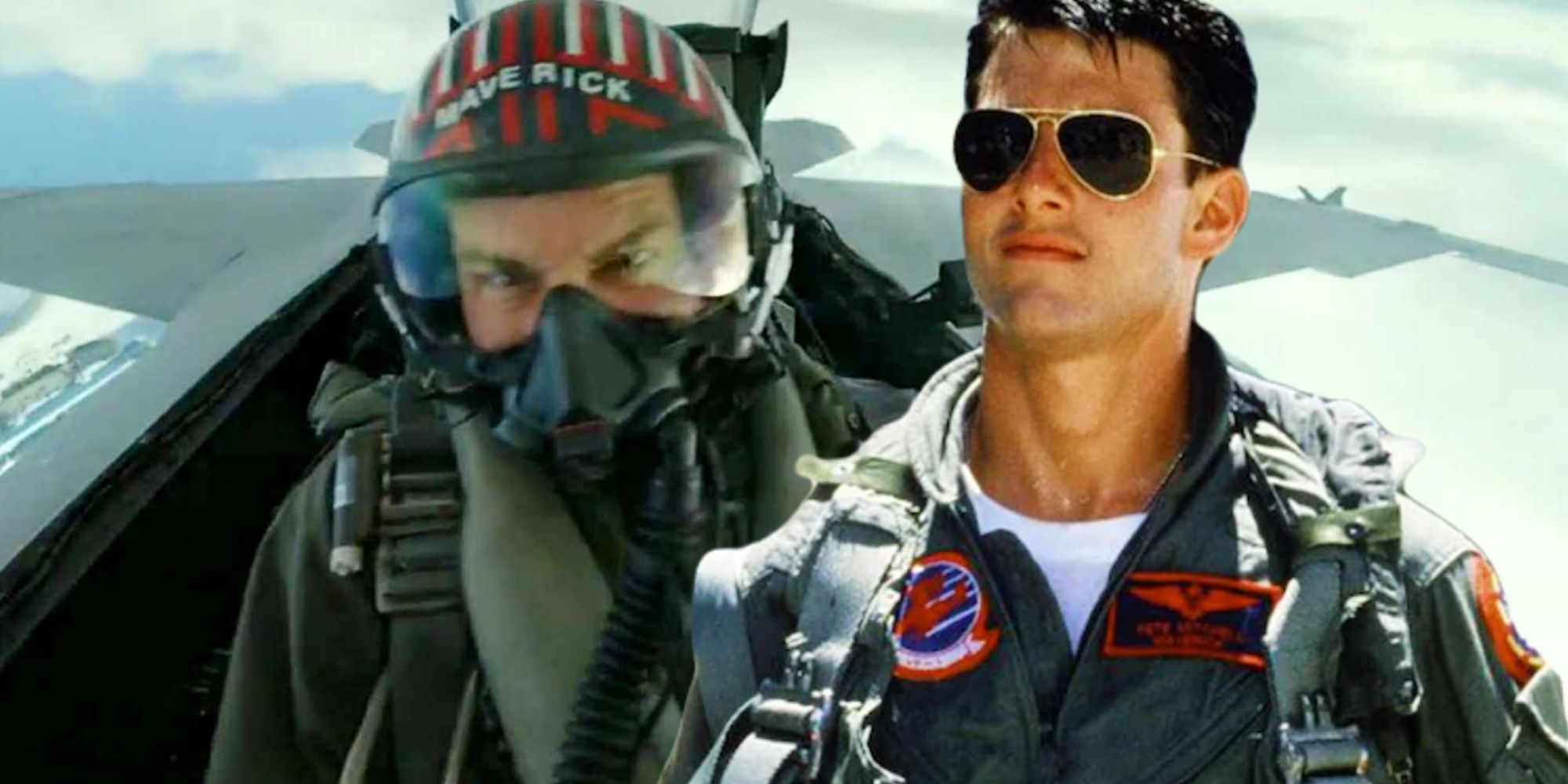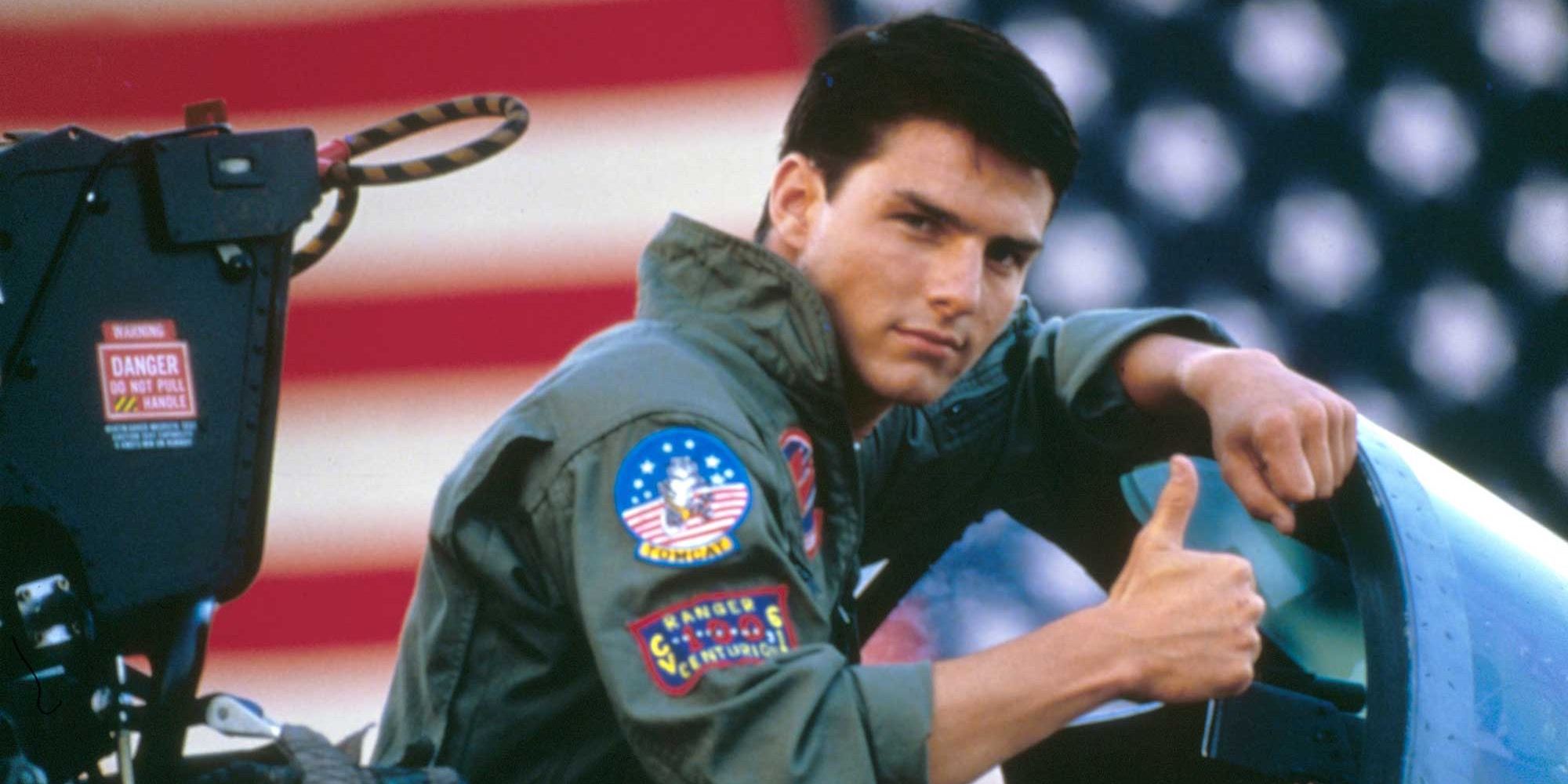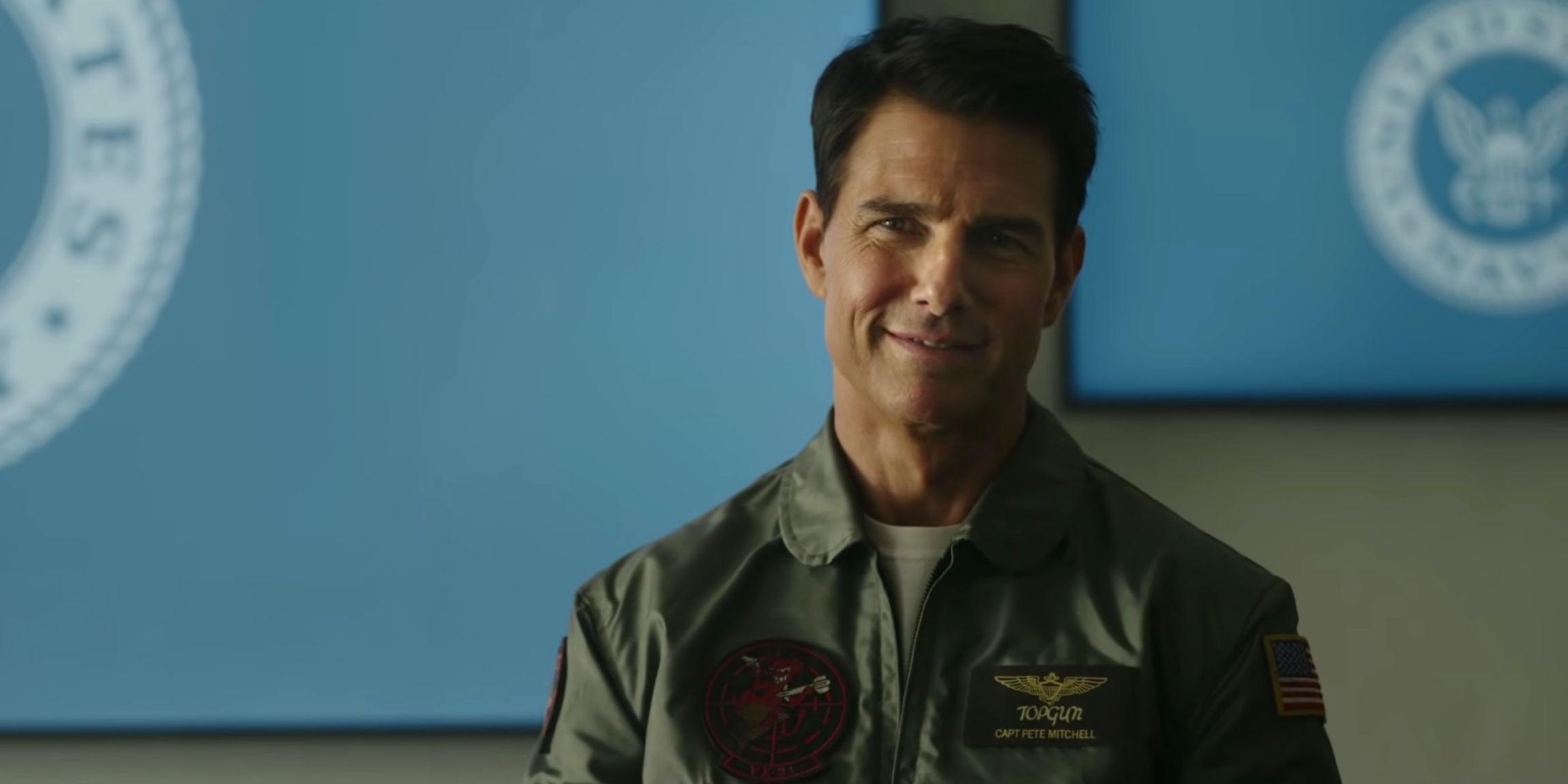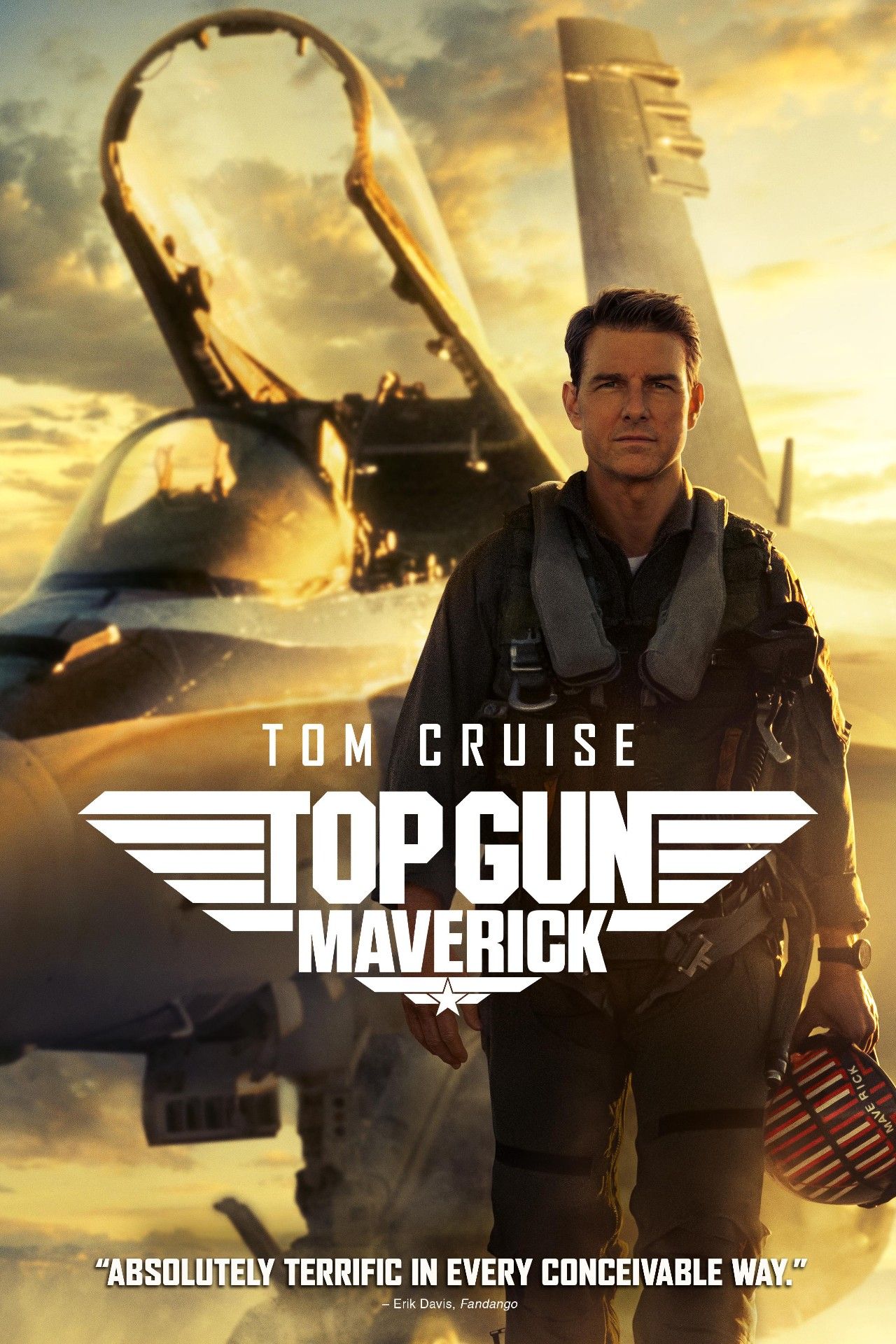Has the upcoming Top Gun 2 already forgotten the significance of the original’s ending? The sequel to Tony Scott's cult classic film, Top Gun, will release its much-anticipated sequel in 2021, marking the return of Naval pilot Maverick (Tom Cruise), after a span of three decades.
While the exact plot intricacies of Joseph Kosinski's Top Gun: Maverick are still unknown, the sequel will be centering upon two parallel plotlines, namely the fraught tensions between Maverick and Goose's son, Bradley "Rooster" Bradshaw (Miles Teller) and the former’s inability (or unwillingness) to advance through the ranks despite his skills. Now that Maverick is a trainer at the US Navy's Fighter Weapons School, which is the same academy that he and Nick "Goose" Bradshaw were sent back to in the '80s, he will be taking on the role of mentor and instructor.
Here’s a deep dive into what the ending of Top Gun signified in terms of Maverick’s character growth and the film’s overarching narrative arc, and how that resolution might potentially be subverted in the upcoming Top Gun: Maverick.
How Top Gun’s Ending Mapped Maverick’s Growth As A Naval Aviator
Right from the opening shot of Top Gun, it is established that Maverick, although a masterful pilot, is driven more by recklessness than a measured sense of passion and responsibility. Early scenes establish this premise, such as when Maverick and his wingman, Cougar, have an encounter with two hostile MiG-28 aircrafts, during which Maverick hovers canopy to canopy with one of the enemy pilots. Throughout the narrative of Top Gun, the character of Maverick essentially undergoes Joseph Campbell's concept of the hero’s journey, which starts with a call to adventure and ends with a fundamental transformation in the titular hero’s core values.
Somewhere along the hero’s journey, he/she meets with a mentor figure, which is also true in the case of Maverick, who meets with Commander Mike Metcalf, aka Viper, an instructor at TOPGUN. During his growth arc, Maverick is constantly challenged by Iceman (Val Kilmer), while he deals with the mysterious death of his father. While Maverick manages to beat Iceman through a range of maneuvers, his tactics are questioned time and again, forcing him to re-evaluate his flippant attitude towards danger. This is exacerbated after Goose’s death, for which Maverick seems to blame himself. Wracked with guilt and constantly mid-fight with his inner demons, Maverick is tempted to quit. However, on learning that his father died a hero, a tangible change occurs in his outlook, which manifests in subtle ways.
In the final moments of the film, when he and Iceman take on six hostile MiG’s, Maverick undergoes a moment of relapse into his innate coping mechanisms, but eventually overcomes his shortcoming, emerging as a hero. The lesson that Maverick learns through the arc of Top Gun is that he is more valuable as a reliable wingman than a lone pilot who is impassioned to the point of endangering those around him. While this realization comes at a heavy price, Maverick is rewarded in the end, wherein he reinstated as a respectable naval aviator. By the end of Top Gun, Maverick learns the hard way that the value of teamwork and camaraderie trumps individual prowess, and the latter is rendered meaningless without the integrity required to stick together in the midst of danger.
How Top Gun 2 Undermines Maverick’s Journey As A Quintessential Hero
While the specifics of Maverick’s life after the ending of Top Gun are unknown, glimpses into Top Gun: Maverick imply that he has barely changed, and he still harbors an obsessive drive to fly. While this is not necessarily a bad thing, as passion often spurs us towards the best outcomes, however, Maverick's hawk-eyed obsession with flying can render him blind to his own faults, which is in keeping with his core personality. It might also be true that flying is the only component of his life that grants him a sense of fulfillment, a sense of purpose, but it is only a matter of time before Maverick starts losing control. Top Gun: Maverick places Maverick both as a flight instructor and test pilot, which paves the way for relapse from a narratorial standpoint.
It is also implied in the Top Gun: Maverick’s summary that Maverick is dodging his inevitable promotion to Admiral, as this would “ground him” and snatch away the thrill of flying as a test pilot. This implies that Maverick is not emotionally ready to let go of flying, as he is too attached to the idea as a means of freedom and escape from the mundane. This might ignite his innate recklessness, which will inevitably manifest during situations strife with danger, putting his young trainees at risk. The extended trailer of Top Gun: Maverick shows that Rooster blames Maverick for his father’s death on some conscious level, as he tells him that he is making the same “mistake” as his father — believing in Maverick. This paints Rooster’s perception of Maverick as an unreliable wingman, someone who cannot be trusted amid high-stakes scenarios. This might potentially grant the sequent with a frenetically tense tinge, wherein Maverick and Rooster are engaged in an emotionally volatile dynamic.
Apart from this, the Rear Admiral raises a pertinent question to Maverick, which points towards the sequel disregarding the original ending’s core message. The Admiral taunts Maverick by saying:
“Thirty-plus years of service. Combat medals. Citations. Only man to shoot down three enemy planes in the last 40 years. Yet you can't get a promotion, you won't retire, and despite your best efforts, you refuse to die. You should be at least a two-star Admiral by now, yet here you are. Captain. Why is that?”
This snippet of dialogue reveals more about Maverick’s character and state of mind in Top Gun 2, as it is clear that he is determined to remain where he is, refusing to move on as per the natural progress of life. He refuses to quit, that is, retire as well, as this would mean giving up the only thing that gives his existence meaning. Despite a potential romantic dynamic with Penny Benjamin (Jeniffer Connelly), it is possible that flying is still Maverick’s utmost priority, one that supersedes his emotional bonds with people. Maverick is still reckless in the field, constantly flirting with death, which hints towards the fact that he is still wounded by the past. It is only a matter of time before Maverick’s fate is made clear, although one can hope that he has not forgotten the lessons that he had learned the hard way in the first Top Gun movie.




